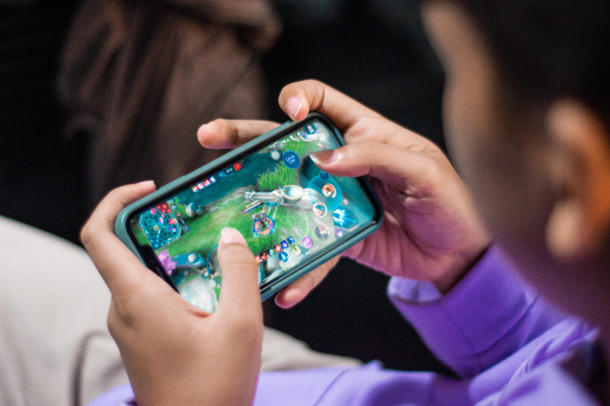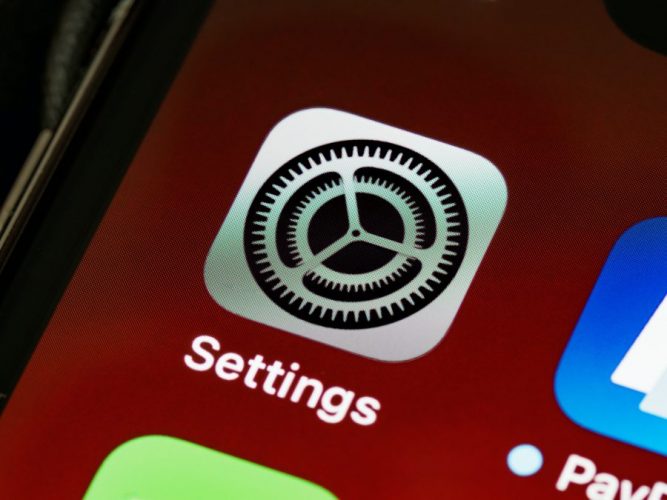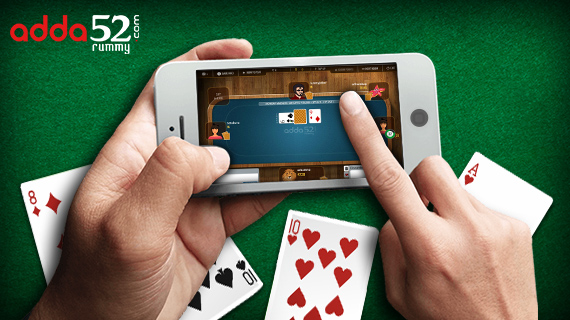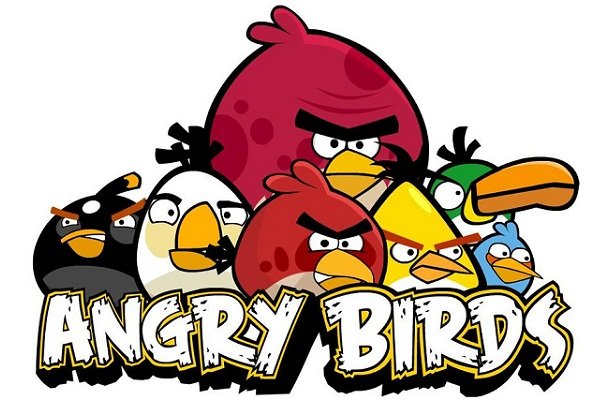iOS Games
Incredible IOS Games

Whether you’re a PC player, a console gamer, or an iPhone user looking for a cheap distraction, we all have one thing in common: we all want to play games. As a result, we’ve all downloaded a game from the impressive game variety at the App Store at some point. After all, mobile gaming is primarily about ease of access and fast dopamine boosts. Would you rather read the tabloids while standing in line at the grocery or play Crossy Road? It’s a straightforward choice. However, choosing which games to download isn’t that straightforward.
If you’ve recently purchased a new or upgraded iPhone or are bored with your current model, you’ll be ecstatic to learn that you can transform it into one of the greatest consoles of all time. That’s because the iPhone is often credited with kicking off the mobile gaming revolution, from exciting multi touch innovation to ports of classic arcade games. As a result, most phones today are capable, powerful handheld consoles — if you know which games to purchase.
When you consider the platform’s hundreds of thousands of games, determining the most excellent games to play on iOS is a challenging endeavour. We can’t say we’ve played them all – at least not yet – but we’re getting there. So here are our recommendations for the finest iOS games, which span all genres, a wide price range, and include both mobile-first and console classics.
Altos Odyssey
Alto’s Odyssey is the sequel to Alto’s Adventure, which was released in 2015. The new game maintains the series’ ability to combine magnificent visuals from skiing with the seamless mechanics of an endless runner. While accomplishing goals, collecting coins, and earning upgrades, make your way down the mountain.
Flappy Bird
Flappy Bird, like nearly all smartphone games, is not a novel concept. Players control a pixelated bird through a succession of confined Super Mario Bros. warp pipes, where any contact with any surface results in sudden death. With each gate passed, your chances of failure increase dramatically, and a double-digit score is definitely something to brag about to the rest of the world. It’s reminiscent of the Helicopter Game, an ancient flash game. Players held down their mouse instead of tapping to dodge obstacles and rack up a high score by avoiding obstacles in a tight tunnel.
Street Fighter IV CE
Street Fighter IV CE is the latest instalment of one of the world’s most popular fighting game franchises, and it’s now available for your iPhone. This mobile version of the 2008 video game includes 31 fighters (including old and new favourites), stunning visuals, single and multiplayer modes, and complete game controller support. While you will have to pay to play this game, it is a fantastic value for a game of this class, and the porting is flawless. If you enjoy fighting games, this is a terrific purchase.

Cards – MonkeyBox 2
Cards! – MonkeyBox 2 is part of Coding Monkeys’ mobile-optimized gaming series, which aims to deliver playful, experimental, and handcrafted experiences. This time, you’re on an adventure with the eponymous cards depicting your deeds and outcomes. You’ll be offered a selection of cards to play as you progress through the scenes. Your choices decide what happens next, which is frequently what leads to your untimely end. The goal is to find out a play sequence that will allow you to advance. The game is based on trial and error, and the sceneries can be hazy and ambiguous. It is impossible to plan ahead of time. This is a brilliantly designed iPhone-optimized reinterpretation of adventure gaming tropes.
Ministry of Broadcast
Ministry of Broadcast is a classic narrative platformer that drops players into a dystopian hellscape and tells them that to escape; they must survive a horrific game show where citizens are forced into obstacle courses. This game bridges the gap between traditional and new schools of thought in the genre, dripping with ambience and enjoyable platforming in equal measure.
Geshin Impact
Genshin Impact is a geisha-based open-world RPG in which you play as an intergalactic traveller who has been stuck on the planet of Teyvat (a realm full of gods and monsters) with their twin. To explore the world, combat monsters, and unravel the mysteries of Teyvat’s history, form teams of four elementally aligned heroes.
This game is bright and vibrant, with a world that is equivalent in scope to The Legend of Zelda: Breath of the Wild and much of it has yet to be disclosed, promising players many, many huge updates before they can fully explore it. The ensemble of engaging and fully voiced characters, each with their own rich history that weaves in and out of the main plot and the other characters’ histories, drives this game.
Banner Saga
Banner Saga combines elements of text-based decision-making and turn-based grid fighting in an adventure-style game. You command a squad of up to six combatants in any one skirmish, drawn from a larger caravan of troops that ebbs and flows in reaction to your decisions and performance. The battles are structured similarly to Final Fantasy Tactics or similar games. Each turn allows a hero to move a specific number of squares and then conduct an action, such as a melee or weapon attack or a magic/support interaction. Things are equally as hazardous outside of war. You make practically all of your decisions, and you’ll pay the price if you make mistakes.
Whether you’re a serious gamer or just want to while away a few hours, these games are the best of the best.
Featured
Horse Racing Games For iOS

Horse racing is a globally spread sport with billions of fans worldwide. The thrills of the races and the excitement of the betting make horse racing quite popular among adrenaline rush seekers.
However, unlike other sports like football or basketball that you can actually try in your backyard, becoming a racehorse rider is out of reach for most people. But all hope for our fellow race lovers is not lost and the gaming world comes to the rescue.
We are talking about horse racing simulation games where you can pick or breed your own horse, participate in online racing tournaments, earn prestige, take care of your horse, and much more.
Horse racing video games are perfect when it comes to getting the bigger picture of the sport and familiarizing yourself with other aspects apart from racing, like stable management, breeding, and finance management.
On top of that, horse racing video games can help you understand how the sport works, which may help you with the next bet you make on TwinSpires.
Fortunately, there are plenty of horse racing games for iOS, and in today’s article, we will highlight some of the best that you should try.
Rival Stars Horse Racing
This is a game made by a legendary horse race video game developer called PikPok and it is without a doubt one of the best horse racing games available for iOS right now.
The graphics look incredible for a mobile game. They are quite realistic, and the horse movement and the design of the tracks also give you the feel that you are participating in a real-world race.
Rival Stars Horse Racing has quite a fast pace, where you can complete some quests and upgrade your stable, but the focus is on the races, as it should be.
When we talk about the racing part of the game, every racetrack that you unlock offers something new. You get to race at different lengths and surfaces. But let’s focus on the important part, race mechanics.
You can steer the horse, brake, and activate their sprint ability. The horse’s performance is based on multiple factors such as ground consistency, position, race length, previous races, and much more.
Rival Stars Horse Racing also has a quite good breeding, training, and managing system. On top of that, there are many different horse coat colors and breeds. Unlike other games like Zelda where you can get a gold horse, Rival Stars Horse Racing focuses on realism. All of the horses have natural coat colors and traits.
You get to collect or breed horses, transform foals to feed, and upgrade facilities to unlock more options to progress.
The only thing that is missing from the game is the audience on the races since the race courses feel a bit empty with nobody around.
Horse Racing Manager 2024
This is a game that has a rather different approach than Rival Stars Horse Racing. It is focused more on the managing part of horse racing rather than on the actual gameplay and racing. You are in control of your business operation and your goal is to succeed in the world of horse racing and earn money.
You don’t have an impact on the races, and you cannot control your horse. The races are simulated, and the outcome depends on your horse’s stats and abilities.
That’s why horse training, and breeding a champion horse play a really important role in the game.
The best thing about Horse Racing Manager 2024 is the ability to race online. There are live PVP races that occur every 5 minutes and everyone can participate in them.
This is the perfect game if you want to learn what’s happening behind the curtains of horse racing as a sport. You are in control of your breeding rights that you can sell, as well as the age and career path of your horse.
It is an interesting game, especially for those who are not afraid of data and analysis.
iHorse Racing
This is a similar game to Rival Stars Horse Racing but with worse graphics, and fewer options. This game has multiple features like horse training, stable management, horse auction, race entries, CLU-jockey hiring system, and world jockey ranking, and you can connect your Facebook profile to invite friends.
To be honest, the graphics and gameplay of the game are fun and engaging, but I’d still go for Rival Stars Horse Racing, especially if you like a more realistic horse racing game.
Pocket Stables
Let’s drop down all the realism and focus on some retro 2D gameplay. For all retro game lovers who have a passion for horse racing, Pocket Stables is just the perfect game. At first glance, this game might look simple, but it actually has many features that make it even more fun.
For starters, you can build training facilities where you can increase your horse’s stats. Additionally, not all horses are the same and your goal should be to find a horse with the right balance of speed, stamina, and intensity.
As you win races, you’ll receive prizes, that can be used to upgrade your stable and give you better ways to breed a faster horse.
It’s fun, casual, and quite cute. Plus, you get to build your horse racing community and hire people that will take care of your stable.
Gaming News
Swiping, Tapping, and Tilting: How Mobile Games Are Played Today

It’s crazy to think mobile games started with super basic stuff like Snake on old-school Nokia phones. Now, thanks to touchscreens and motion sensors, playing games on our phones feels more immersive than ever. Whether it’s swiping to cast spells, tilting to steer race cars, or just furiously tapping buttons, mobile gaming has come a long way from static keypads of the past.
How It Was
In the beginning, little keypads were the only controls we had to work with. Remember playing Brick Breaker on their BlackBerry, anyone? Then, the accelerometer changed everything. Suddenly, we could just tilt our phones to do all kinds of things like aim angry birds, balance stacks of blocks, even steer cars in racing games. Way better than pressing little arrows!
Of course, as screens got more advanced, mobile games exploded into all kinds of genres, from puzzles to 3D adventures. Multitouch displays, in particular, are what really enabled natural feeling gesture controls.
Swiping Changes the Game

These days, swiping is easily one of the most common ways we interact with mobile games. You’ll find it everywhere, from temples you raid in endless runners like Temple Run to baseball diamonds when batting in MLB Tap Sports Baseball. Swiping not only feels super intuitive but also adds velocity and immediacy, perfect for fast-paced games.
Even slower-paced games use swipes for all kinds of game mechanics, like directing troops across battlefields in strategy games such as Clash of Clans. No matter the genre, swiping works because it feels so smooth, direct, and responsive. Not to mention, it’s just plain fun!
Tapping into Gameplay
Tapping will always be one of the best ways we can interact with phones. After all, it’s how we click links, type messages, and snap pics. For gaming, taps are perfect for delivering pinpoint precision. There’s nothing quite as satisfying as nailing a perfect note streak in games like Piano Tiles by tapping right on the beat.
You’ll also find that tapping makes snappy navigation through menus and UI thanks to its accuracy and responsiveness. Most games use taps for activating fundamental stuff like making your character jump, shoot, or interact with objects in the game world. It’s just so reliable!
Hypercasual games, in particular, thrive on simple yet addictive tap mechanics around sorting colors, popping bubbles, merging objects, and the like. When gameplay boils down to pure interactivity, nothing beats good old-fashioned screen tapping.
Getting Physical with Motion Controls
Phones now pack all kinds of motion sensors that track positioning and tilt along multiple axes. It allows for a myriad of gesture controls that add physicality and mimic real actions. For example, you can cast a line by flicking your phone while fishing in Ridiculous Fishing. Steering vehicles in racing games feels super tactile by tilting your phone to control direction. Even party games get in on the action with shaking or wiggling gestures detecting your phone’s movements.
Anything that gets us moving beyond just staring at the screen helps create moments of skill-based mastery. You feel much more engaged pulling off tricky shots in pool games by adjusting just the right angle or keeping teetering structures from collapsing with careful tilting. That sense of physical feedback goes a long way toward gameplay immersion.
Voice, AR, and Beyond
With phone cameras, mics, and sensors improving by the generation, we’re beginning to see radical new control schemes. Augmented reality transforms the world around you into a game environment like we’ve seen with monumental successes like Pokémon GO. Calling plays or audibling routes by literally yelling at your phone has also created hilarious moments playing Madden NFL Mobile. Heck, the camera can even scan objects to import them into games. The possibilities seem endless as technology progresses!
But with all these advancements, the most crucial thing developers can do is make sure their games remain accessible through difficulty settings, customizable controls, and assist modes. That way, anyone can tailor things to their personal playstyle and limitations. Gaming needs to be fun and inclusive for everybody, after all!
With new mobile games flooding app stores every single day, it feels risky trying out some random new title. That’s where special apps like Cash Giraffe come in handy. They actually give you money just for testing out new mobile games with no strings attached!
Where Are We Headed?
It’s anyone’s guess where things go next. Controllers are becoming more common to make mobile gaming feel console quality. Tools like Apple Pencil and Bluetooth styluses could let us draw playfields or game elements. New sensors might even track eye movements for hands-free control. The future is filled with possibilities!
For now, though, as long as developers keep innovating with intuitive tap, tilt, and swipe gestures, mobile games should have no problem staying fun and immersive. Just try not to smash your phone in celebration next time you pull off an epic comeback!
iOS Games
Is it harder to qualify for iOS requirements or Android requirements for apps?

In today’s digital age, mobile applications have become a crucial component of everyday life. They provide users with access to a wide range of services, entertainment, and information at their fingertips. However, creating a mobile app that works seamlessly on both iOS and Android platforms can be a daunting task. Developers need to ensure that their app meets the strict guidelines set by both platforms to ensure a smooth user experience.
The iOS and Android platforms have their own unique set of requirements and guidelines that must be followed for an app to be approved and made available to users. These guidelines include technical requirements, design standards, and content policies, among others. To ensure that an app reaches the largest possible audience, it is crucial that it meets the requirements of both platforms.
In this blog post, we will examine the question of which platform is harder to qualify for, iOS or Android requirements, using a casino app as an example. We will explore the specific requirements for casino apps on both platforms, the challenges developers face in meeting these requirements, and provide insights into which platform is more difficult to qualify for. By the end of this post, readers will have a better understanding of the requirements for developing mobile apps and the challenges faced by developers in meeting these requirements.
Overview of iOS and Android Requirements for Apps
To develop a successful app, it is crucial to understand the guidelines and requirements set by both iOS and Android platforms. Here’s an overview of the general requirements for apps on both platforms:
User Interface Guidelines: Both iOS and Android platforms have their own unique user interface guidelines that app developers must follow. These guidelines provide recommendations on designing app icons, typography, color schemes, and other visual elements to ensure a consistent and user-friendly experience.
Technical Requirements: App developers must ensure that their apps meet the technical requirements set by both platforms. For example, the app must function properly on the latest versions of the operating system, use appropriate security protocols, and avoid unnecessary battery consumption.
Content Policies: Both iOS and Android platforms have policies governing the type of content that can be published on their respective app stores. These policies cover a range of topics, including adult content, intellectual property infringement, and deceptive practices. Developers must ensure that their apps meet these content policies to avoid rejection from the app store.
While the general requirements are similar, the specific guidelines and approval processes for iOS and Android platforms differ in several ways. For example, iOS has a more stringent approval process compared to Android. The App Store review process can take several days, and the approval criteria are often subjective. In contrast, Android has a more lenient approval process, with apps typically available for download on the Google Play Store within a few hours of submission.
Additionally, iOS has a closed ecosystem that limits the apps available to users. Developers must adhere to Apple’s strict policies and guidelines for inclusion in the App Store. On the other hand, Android has an open ecosystem that allows for more flexibility in app development and distribution. Developers can publish their apps on third-party app stores or distribute them directly to users.
Overall, developers must understand the differences between iOS and Android requirements and tailor their development approach accordingly. While both platforms have their unique challenges, meeting their requirements is essential for app success.
Requirements for a Casino App on iOS and Android
Developing a casino app for iOS and Android requires careful attention to platform-specific requirements and regulations. Here’s an overview of the specific requirements for casino apps on both platforms:
Regulations on Gambling Apps: Both iOS and Android platforms have strict regulations on gambling apps, which are intended to protect users from fraudulent activity. Apple only allows real-money gambling apps in certain countries, and developers must hold a valid gambling license in those countries. On the other hand, Android allows real-money gambling apps in many countries, but developers must comply with local laws and regulations.
Policies on In-App Purchases: In-app purchases are a significant source of revenue for casino apps. However, both platforms have policies governing in-app purchases to ensure a fair and transparent user experience. Apple requires all in-app purchases to be processed through its own payment system, which takes a 30% commission on all transactions. In contrast, Android allows developers to use third-party payment systems and takes only a 15% commission on transactions.
Requirements for App Design and Functionality: Both iOS and Android platforms have requirements for app design and functionality. These requirements cover various aspects of the app, including user interface, navigation, and security. For example, apps must use secure authentication protocols and encryption to protect user data.
When it comes to casino apps, there are some significant differences between the requirements for iOS and Android. For example, Apple does not allow apps that offer gambling services to minors, and developers must comply with strict age verification requirements. Android also has age restrictions but allows for more flexibility in the types of gambling apps that can be developed and published.
Another significant difference between iOS and Android is the availability of real-money gambling apps. While iOS only allows real-money gambling apps in certain countries, Android allows these apps to be developed and published in many countries. This can impact the development approach and revenue potential of a casino app.
In conclusion, developing a casino app for iOS and Android requires careful consideration of platform-specific requirements and regulations. While there are similarities in the requirements, there are also notable differences that must be considered. Click here to see these casinos and their respective apps to better understand the design and functionality requirements of casino apps on both iOS and Android platforms.
Challenges of Meeting iOS and Android Requirements for Casino Apps
Developing a casino app that meets the requirements of both iOS and Android platforms can be a complex and challenging task. Here are some of the common challenges that developers face:
Compliance with Regulations: Casino apps are subject to strict regulations on both iOS and Android platforms. This can include requirements related to gambling licenses, age verification, and responsible gambling. Developers must ensure that their apps comply with these regulations to avoid rejection from the app store.
Payment Systems: In-app purchases are a significant source of revenue for casino apps, but the payment systems used by iOS and Android platforms differ significantly. Developers must carefully consider which payment system to use and ensure that they comply with the policies of the platform.
User Interface: Both iOS and Android platforms have unique user interface guidelines that app developers must follow. These guidelines provide recommendations on designing app icons, typography, color schemes, and other visual elements to ensure a consistent and user-friendly experience. However, designing a user interface that meets the requirements of both platforms can be challenging, especially when dealing with complex user interfaces and game mechanics.
Security: Casino apps require robust security measures to protect user data and prevent fraudulent activity. Developers must ensure that their apps use secure authentication protocols and encryption to safeguard user data.
While the challenges faced by developers in creating casino apps for iOS and Android platforms are similar, there are notable differences. For example, Apple has stricter age verification requirements for gambling apps than Android, which can be a significant challenge for developers. Additionally, the payment systems used by the two platforms differ significantly, with Apple taking a 30% commission on all in-app purchases compared to Android’s 15% commission.
In conclusion, developing a casino app that meets the requirements of both iOS and Android platforms can be a challenging task. Developers must navigate complex regulations, payment systems, user interface guidelines, and security measures. While there are similarities in the challenges faced, there are also notable differences that must be considered. By understanding these challenges, developers can create high-quality casino apps that meet the requirements of both platforms.
Conclusion
In conclusion, developing a mobile app that meets the requirements of both iOS and Android platforms can be a challenging task. In this blog post, we explored the specific requirements for a casino app on both platforms, the challenges developers face in meeting these requirements, and provided insights into which platform is harder to qualify for based on the example of a casino app.
We learned that both iOS and Android platforms have unique requirements related to user interface guidelines, technical requirements, content policies, and regulations on gambling apps and in-app purchases. While there are similarities in the requirements, there are also notable differences that must be considered.
In terms of which platform is harder to qualify for, the answer may vary depending on the specific app being developed. However, in the case of a casino app, iOS is generally considered to be the more challenging platform due to its stricter regulations, more stringent approval process, and higher commission rates for in-app purchases.
As mobile app development continues to evolve, it is essential for developers to stay up-to-date on the requirements and guidelines set by both iOS and Android platforms. By doing so, they can create high-quality apps that meet the needs of their target audience.
We encourage readers to share their experiences developing apps for iOS and Android platforms in the comments below. Your insights can help others navigate the challenges of mobile app development and contribute to the continued growth of the mobile app industry.
-

 Guides5 years ago
Guides5 years ago6 Proven Ways to Get more Instagram Likes on your Business Account
-

 Mainstream10 years ago
Mainstream10 years agoBioWare: Mass Effect 4 to Benefit From Dropping Last-Gen, Will Not Share Template With Dragon Age: Inquisition
-

 Casual11 months ago
Casual11 months ago8 Ways to Fix Over-Extrusion and Under-Extrusion in 3D Printing
-

 Mainstream12 years ago
Mainstream12 years agoGuild Wars 2: The eSports Dream and the sPvP Tragedy
-

 Guides8 months ago
Guides8 months agoExplore 15 Most Popular Poki Games
-

 Mainstream6 years ago
Mainstream6 years agoHow to Buy Property & Safe Houses in GTA 5 (Grand Theft Auto 5)
-

 Uncategorized4 years ago
Uncategorized4 years agoTips To Compose a Technical Essay
-

 iOS Games1 year ago
iOS Games1 year agoThe Benefits of Mobile Apps for Gaming: How They Enhance the Gaming Experience


